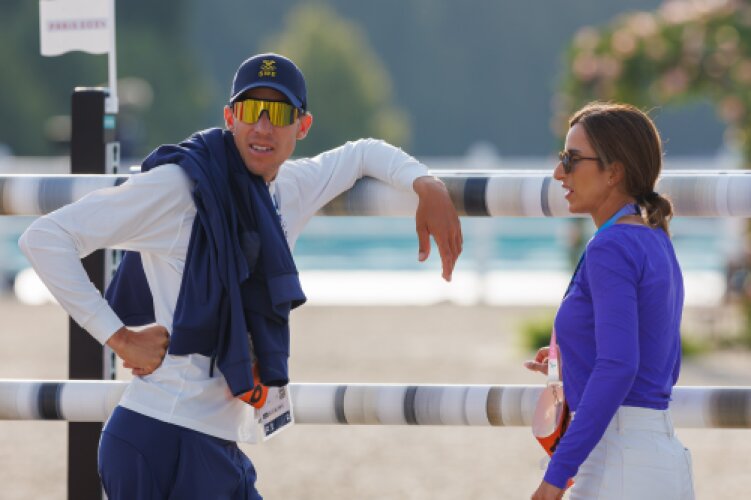In this episode of JUMP-OFF, we delve into the intricate world of equine trade, where the fine line between a veterinarian's assessment and a buyer's interpretation can significantly impact the market. Join our esteemed panel of guests, including Luc Tilleman, Maurice van Roosenbroeck, Maikel van der Vleuten, and legal expert Tom Swinnen, as they dissect the complexities of this industry.
Luc: "I believe it's a highly complex matter. The veterinarian conducts a clinical examination, gaining insights in just a few minutes. Then come X-rays and, if necessary, scans."
"While trust has been the cornerstone of our business, maintaining open relationships with trusted clients, it's sometimes abused. We must strive to differentiate ourselves by offering honest and transparent services."
"I always sell my own horses, which grants us the luxury of standing behind their health after several years of competition. But when a horse undergoes a clinical examination, it must trot on the hard circle, something it rarely does otherwise. It's a delicate balance."
"Using the vet check as a bargaining tool can be a double-edged sword, sometimes working in your favor and at other times against you. For instance, when there are poor-quality photos with a certain level of risk involved, price negotiations can come into play. Of course, the trader must be willing to bear that risk, something a private buyer might find challenging."
"It remains a gray area indeed. Roughly speaking, about 20% of horses can be sold without any remarks, 40% may have some comments, and then there's the 20% that doesn't pass the examination for sale. The stringency of these examinations also varies depending on the individual horse. A young horse typically undergoes a more rigorous evaluation compared to a 9 or 10-year-old horse with a successful international sport history. The older horse may be pricier, but the examination tends to be less demanding compared to a young horse that still needs to prove itself."
Should a legal framework be established for this?
"The risks veterinarians face nowadays, especially regarding liability during purchase examinations, may be overstated. Proving that a veterinarian committed a professional error can be challenging due to the aforementioned grey area and the difficulty of assessing certain scenarios."
"I do believe a legal framework could be beneficial. Currently, clear agreements with clients are often lacking. In other industries, assignment letters are drafted, outlining the scope of work and potential limitations. It clarifies that the veterinarian offers an opinion based on their best judgment, without guaranteeing any outcomes. Unfortunately, this practice is rare."
Maurice: "In practice, we rarely see such agreements."
Tom: "I think the market could benefit from a legal framework, as the industry continues to professionalize in various aspects. It's not just about examinations; issues can also arise in horse reproduction, which is part of the profession."
Maikel: "I haven't faced significant issues in the past. Of course, opinions can vary. In my case, I ride the horses, and the feeling and the actual performance must align. I've had horses that performed exceptionally at the top level but might not pass a clinical examination. If I didn't know the horse, I might hesitate, but it doesn't necessarily mean the horse isn't good."
Tom: "The need for a legal framework primarily arises when consumers, unfamiliar with the equine world, rely on an 'outsider' veterinarian. Establishing clear terms and boundaries for this new relationship can be helpful. It's not mandatory, but it can provide reassurance."
Luc: "As for us, we have the standard liability covered through our company, but there's nothing specific for the trade. I've noticed a new trend lately, with foreign customers inspecting three or four horses at different locations, intending to purchase only two. Horses that don't pass the examination are rejected, and they move on to the next."
Join us as we explore the intricacies of equine trade, the evolving role of veterinarians, and the potential benefits of a legal framework in ensuring transparency and fairness in this dynamic industry.



